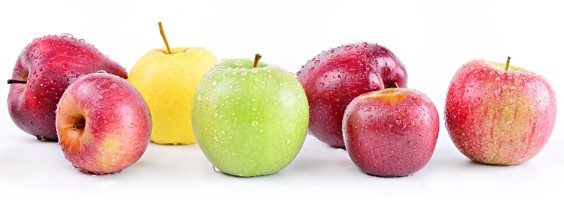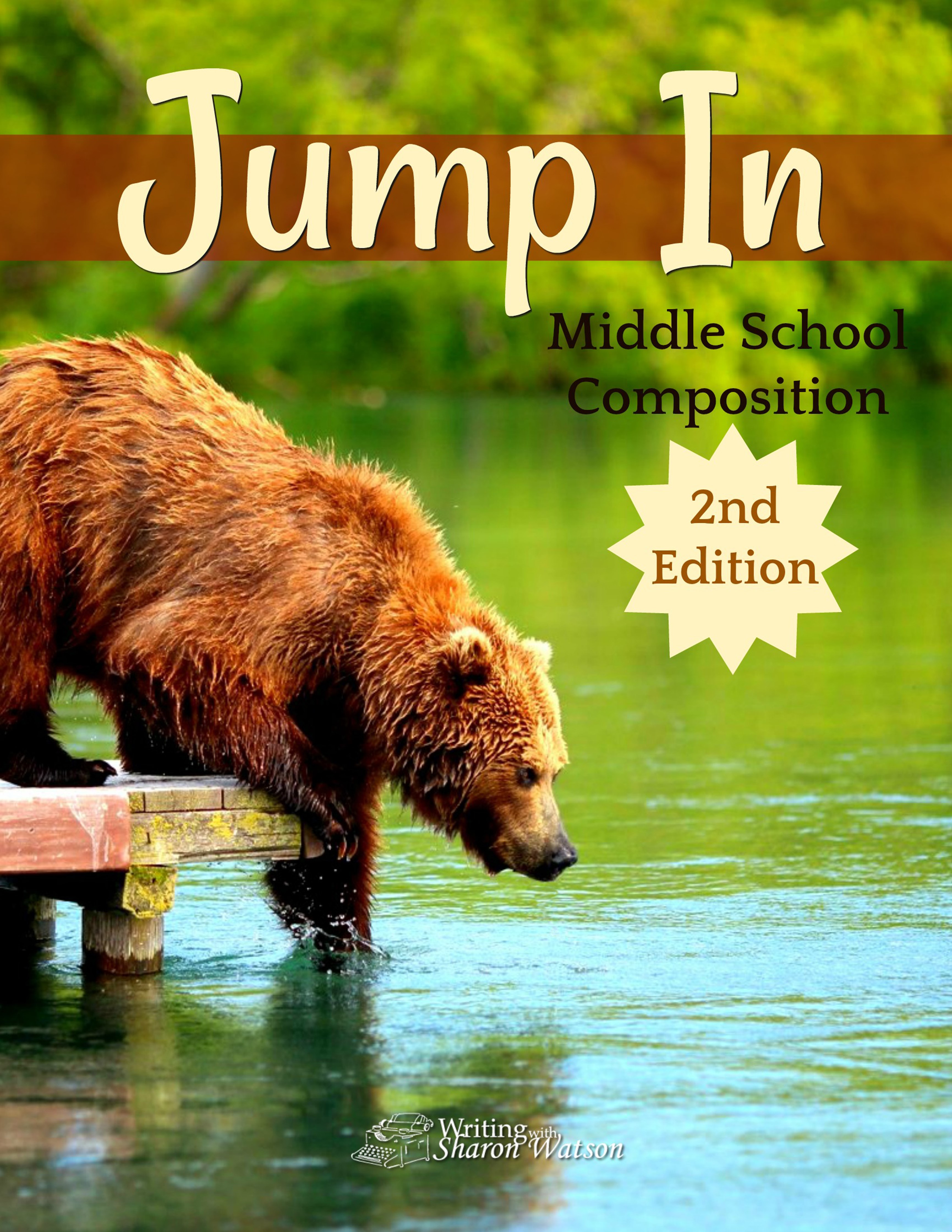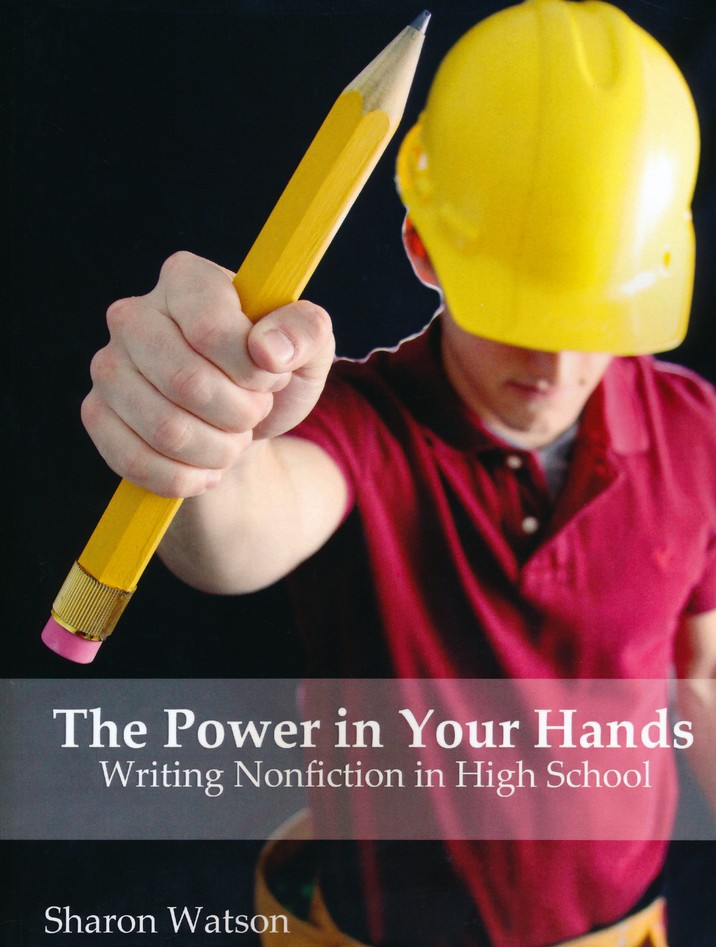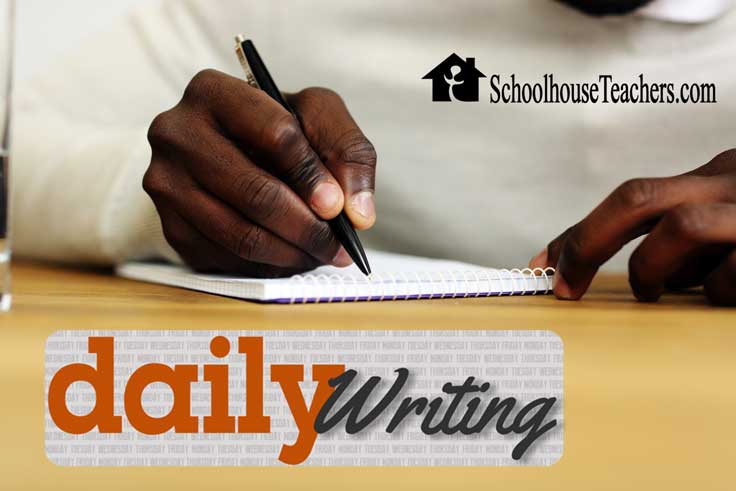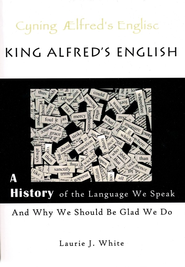Our word choices can have a huge impact on our readers. Or the words can muddle them. Let me give you an example.
If I write that a toddler is a good eater, I suddenly have a communication problem. The word “good” is not specific enough. Does “good” mean that the toddler is neat while eating? Does it mean that the child eats a large quantity of food or perhaps a variety of food without complaining? My readers will not have a clear idea of my meaning.
Your middle school students will learn this in the first writing prompt. I’ve written a very boring paragraph about something that seemed exciting to the student, but the words I selected were flat, overused, and not specific enough.
Teens will have fun with the second writing prompt as they practice using specific words and phrases to get a point across or create a focused mood.
Ready? Let’s go . . .
1. From Boring to Glowing
For a free PDF of this exercise, follow this link.
Directions: Read the paragraph about a play but try not to yawn. Then rewrite it so that people will want to read it. Your word choices can make this play seem heart-pounding. Make it glow!
Remove anything like “real,” “really,” and “good.” Those are too general; they are not specific enough. Verbs in the “to be” family, like “was” and “were,” sometimes can be problems, too, because they take the place of better, more specific verbs.
+++++
I was in a play, and it was real fun. The costumes were so fun to wear. I really liked wearing mine. The audience laughed when the play was funny, and they were real quiet when the play was sad. Once, I forgot my lines, but then I heard my cue and kept going. All the cast had a good time doing the play together.
2. Strange Scuttling Things
If you write an essay about online predators, it makes sense that you would use words like “wolf” and “attack” and “trap,” all words that refer to how dangerous online predators are. If the essay is about the dangers of, say, the addiction of gambling, words like “coiled cobra,” “boa constrictor,” and “slither” will be appropriate, giving a metaphor for the peril. Your word choices focus the reader on the one image you are creating.
When selecting a simile for how a nine-year-old boy feels when he has to play his cello before an impromptu audience, it would make no sense to say that his heart “beat like a bat striking home plate before the pitch.” That simile does not flow with the idea of music. Instead, the more appropriate word image would be to have his “heart pounding like a timpani in my chest.” This example is from Neil Gaiman’s “Good Boys Deserve Favors.”
Focus on creating one mood or image. This is what Gaiman does in his tongue-in-cheek tale “Forbidden Brides of the Faceless Slaves in the Secret House of the Night of Dread Desire.” (You’ve got to know that he was having fun when he made up that title!)
In this short story, a young man is trying to write a “slice of life as it truly is,” and we find that he is living in a Gothic-novel setting—dark mansion, crypt, and so on. Here are some of the word images he uses as he writes his “true-to-life” tale:
The white pillars [of the old mansion] seemed skeletal, like the bones of a great beast
A desiccated voice, redolent of crackling parchment and musty grave-hangings
Raven locks
Black tallow candle
Bone-colored finger
A smell came from the darkness beyond, of must and dust and abandonment
The bat-wing curtains shook
Strange scuttling things gibbered and cheetled in the black drapes
The voice of the bird was like stone striking against stone
Yellowing maps
Well, anyway, you get the point. Every word and phrase supports the main idea—in this case “creepy Gothic”—just as they should in an essay.
Select a subject that interests you (sports, clothing, cars, music, and so on) or one mood or impression you would like to create. The select seven words, phrases, images, and figurative language like similes that focus readers on your one idea.
*****
Would you like more prompts and tutorials on choosing the just-right word? Click or tap here for a bundle of 9 prompts/tutorials.
Looking for more prompts? Enjoy our Middle School Prompts and our High School Prompts.
*****
A version of this prompt was first posted on SchoolhouseTeachers.com. You can go directly to SchoolhouseTeachers.com to sign up and take advantage of many exciting courses written by experts in their fields.
This post contains affiliate links.
 Download your FREE chapters from our new literature course Illuminating Literature: When Worlds Collide.
Download your FREE chapters from our new literature course Illuminating Literature: When Worlds Collide.
Teachers, connect with Sharon on Facebook or Pinterest!
 Are your writers struggling? Do you wish you could figure out why your children won’t write? Would you love to have a peaceful writing class experience?
Are your writers struggling? Do you wish you could figure out why your children won’t write? Would you love to have a peaceful writing class experience?
Help your struggling writers—and you!—by identifying five hurdles to writing. Then learn practical actions you can take against those hurdles.
This article by me in The Old Schoolhouse magazine is also loaded with links to other helpful posts that will give you and your writers some welcome relief.
Click here to drain some of the tension from your writing class
Frustrated that your students don’t finish an essay or don’t know the steps to complete one? Worry no more! Click here for my latest article in The Informer about a super-practical writing schedule you WILL use!








